1. Travel Agency Front Desk Clerk

Travel agencies still exist, but their physical offices look very different now. The pandemic accelerated the move to online booking platforms, leaving those welcoming front-desk clerks with little to do. With flights grounded and vacations canceled, many agencies closed their brick-and-mortar doors for good. The friendly smile greeting you as you picked up paper tickets disappeared almost overnight.
Those agencies that survived did so by pivoting to specialized online services. Customers no longer walk in; they browse websites or consult via video calls. This means clerks were either reassigned or let go entirely. The once-busy desks filled with brochures are now relics of pre-2020 travel culture.
2. Movie Theater Projectionist
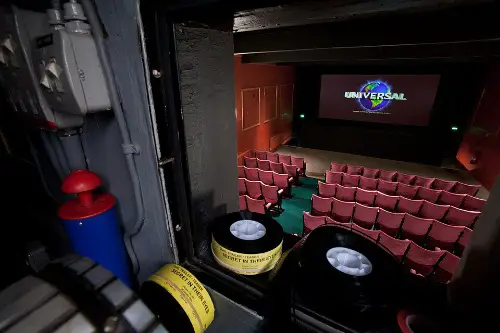
The projectionist role was already shrinking before 2020, but the pandemic dealt a fatal blow. With theaters shuttered and studios shifting to streaming, the need for someone to thread film through a projector essentially vanished. By the time audiences trickled back, the few remaining theaters had fully automated systems. The human touch of handling reels and checking focus is now just a memory.
Many longtime projectionists retired or retrained during the lockdowns, never to return. Automation was cheaper, faster, and more consistent than a dedicated staffer. Even major chains no longer hire for the position, relying on digital scheduling instead. What was once a highly skilled trade has quietly slipped into the history books.
3. Mall Santa Photographer Assistant

Malls struggled to stay afloat in 2020, and seasonal jobs like photographing kids with Santa vanished first. These assistants once managed props, soothed nervous children, and sold photo packages to parents. When malls closed or limited foot traffic, the tradition went digital or disappeared entirely. By 2021, many stores simply didn’t bring the role back.
Instead, some companies offered “virtual Santa” experiences online. Parents could upload photos and receive a digitally altered picture of their child with Santa instead of visiting in person. That innovation left little need for in-person helpers. What was once a charming seasonal gig is now largely gone.
4. Subway Token Booth Operator
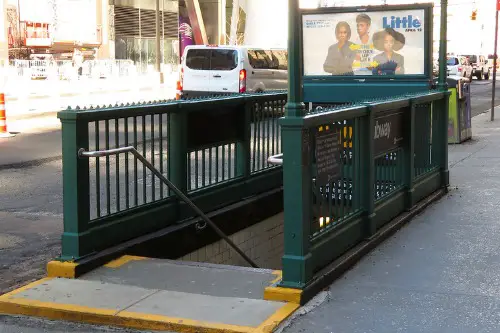
In cities like New York, token booths had already transitioned to MetroCards long before 2020. But the pandemic sped up the shift to fully contactless payment systems. Stations once staffed by operators giving directions and selling passes now rely on machines and phone apps. The last token booths went dark during those quiet pandemic months.
For commuters, it was both convenient and bittersweet. The personal interaction with a familiar booth operator disappeared. Staff were redeployed as roaming customer service agents, but not in permanent booths. That classic exchange of sliding a coin under the glass is officially part of history.
5. In-Store DVD Rental Clerk
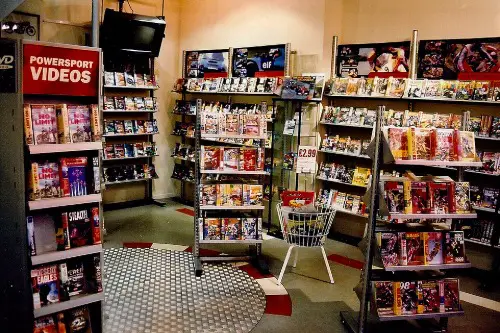
Video rental was fading for years, but kiosks like Redbox gave the job a brief extension. In 2020, however, even those saw their usage plummet as people leaned fully into streaming. Clerks who managed inventory at the last mom-and-pop rental shops had nowhere to pivot. By the time restrictions lifted, customers weren’t coming back.
Netflix, Disney+, and countless others replaced the Friday night ritual. The demand for physical discs became so small that stores couldn’t justify staying open. Clerks who once recommended hidden gems lost the chance to share that knowledge. Now, all that’s left are nostalgic memories of walking out with a DVD in hand.
6. Newspaper Printing Plate Maker

The newspaper industry had been contracting for decades, but 2020 hit it especially hard. Many local papers shut down completely when ad revenue dried up, and with them went the need for plate makers. These were the workers who carefully etched printing plates for daily runs. Once circulation dropped dramatically, the role effectively disappeared.
Larger papers that survived transitioned to more efficient digital systems. The specialized skill of manually preparing plates was no longer sustainable. Workers either retrained in digital press operations or were let go. The hands-on craftsmanship that went into printing a paper became another casualty of the digital age.
7. Airline Ticket Counter Agent (for Paper Tickets)
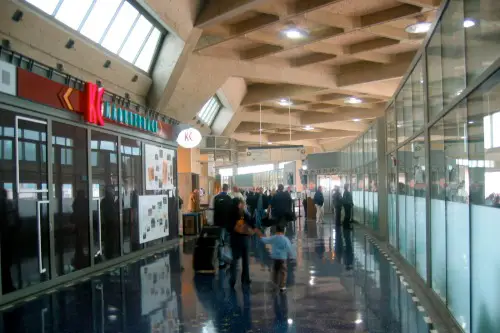
Airline employees didn’t vanish, but the role of the ticket counter agent dedicated to paper tickets did. Before 2020, some passengers still printed tickets or relied on counter staff for boarding passes. The pandemic made contactless travel the new standard, eliminating paper exchanges. Airlines leaned fully into apps, kiosks, and QR codes.
This meant fewer agents were needed to handle check-ins. Instead, staff were shifted toward baggage or customer support roles. The old days of having someone hand you a paper boarding pass with a smile are gone. That job title, at least in its classic form, has disappeared.
8. Bank Teller Cash Advance Clerk

Once upon a time, people went to their local bank branch for cash advances on credit cards. By 2020, that service had dwindled, but the pandemic ended it for good. With fewer in-person visits, banks encouraged customers to use ATMs or mobile apps. The dedicated teller who processed cash advances was phased out.
It made sense from the bank’s perspective. Handling such transactions required extra time and paperwork. Customers adapted quickly, and soon nobody expected that service at the counter anymore. The niche role folded into history without much fanfare.
9. Stadium Ticket Seller
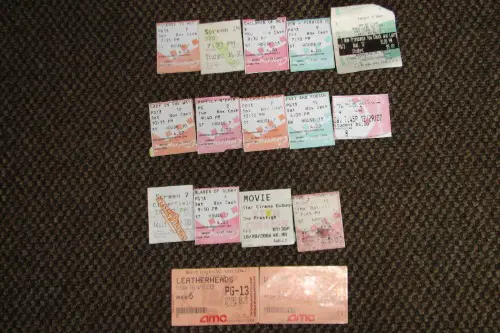
Sports and concerts halted abruptly in 2020, which meant ticket booths closed too. The people who sat behind glass windows, handing out paper tickets, suddenly had nothing to sell. Even when events returned, teams and venues pushed mobile-only ticketing for safety. The job simply didn’t come back.
Fans now scan their phones or print tickets at home. Venues embraced the efficiency and cost savings of digital systems. Former sellers either moved into customer support roles or left the industry altogether. The booth with the “Tickets Here” sign is now a relic of pre-pandemic entertainment.
10. Hotel Room Phone Operator

Hotels once employed operators to answer phones, connect calls, and provide room service requests. When travel collapsed in 2020, many hotels cut staffing to the bone. By the time business picked up, guests were using apps and direct-dial systems. The job of a dedicated room phone operator was eliminated.
Guests now order food or request services through their smartphones. For hotels, it was an easy cost-saving measure. The personal voice saying, “Room service, how may I help you?” is gone. That hospitality touchpoint no longer fits the streamlined model of modern travel.
11. Public Payphone Maintenance Worker
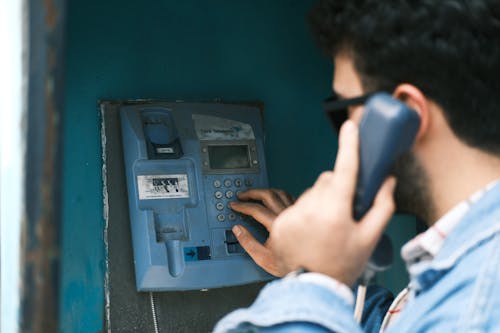
Payphones were already an endangered species, but 2020 hastened their demise. As people relied on personal devices more than ever, cities removed the last few payphones. That meant the technicians who maintained and repaired them lost their jobs entirely. By 2021, entire regions had no payphones left to service.
The pandemic underscored how unnecessary public phones had become. Even in emergencies, smartphones and Wi-Fi calling filled the gap. The workers who once carried spare parts and change boxes had nothing left to maintain. Their toolkit of wrenches and wires is now a museum piece.
12. Video Game Arcade Attendant
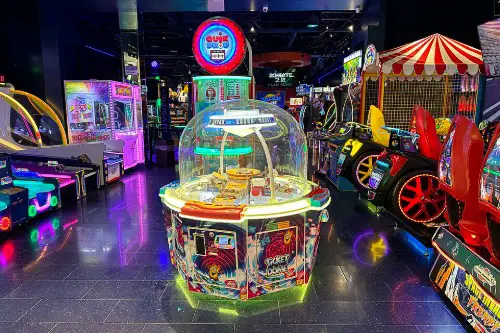
Arcades struggled when people stopped gathering indoors, and many never reopened. These attendants once fixed machines, handed out tokens, and supervised prizes. The pandemic knocked out a huge portion of arcades worldwide. Without enough customers, the job disappeared with the businesses.
The few arcades that remain run on smaller staffs and automated systems. Machines now handle ticket counting and redemption. What was once a fun job for teenagers and enthusiasts alike simply isn’t needed anymore. The bustling sound of coins and machines is no longer paired with an attendant behind the counter.
13. Door-to-Door Sales Representative

Door-to-door sales had been shrinking for years, but the pandemic finished it off. Health concerns made unannounced visits unwelcome, and entire companies pivoted to online marketing. Representatives who once sold everything from vacuums to encyclopedias simply stopped knocking. By 2021, the practice had effectively vanished.
Digital advertising proved far more effective and scalable. Consumers became accustomed to researching and buying online instead of at their doorstep. For sales reps, the sudden end of in-person interaction was a shock. Today, the once-iconic image of a salesperson with a briefcase feels like something out of a bygone era.
This post 13 Jobs That Disappeared Completely After 2020 was first published on American Charm.


